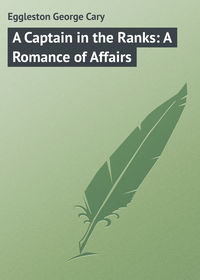Kitabı oku: «A Captain in the Ranks: A Romance of Affairs», sayfa 4
Bir şeyler ters gitti, lütfen daha sonra tekrar deneyin
Türler ve etiketler
Yaş sınırı:
12+Litres'teki yayın tarihi:
19 mart 2017Hacim:
270 s. 1 illüstrasyonTelif hakkı:
Public Domain